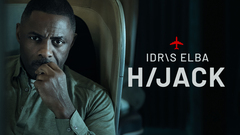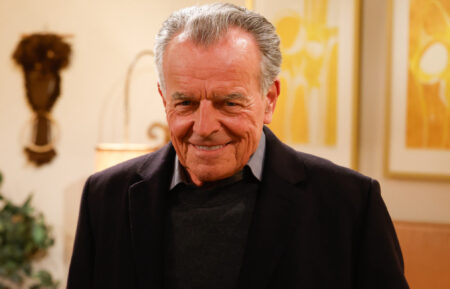‘Hijack’ Bosses Unpack Finale & Explain Why Sam Didn’t Have That Hero Moment
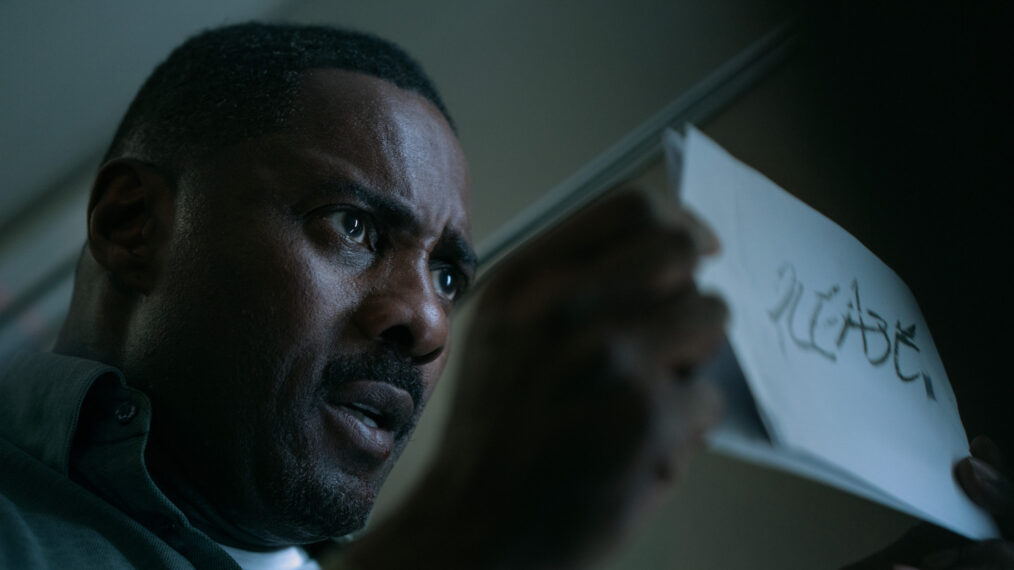
Spoiler Alert
[Warning: The below contains MAJOR spoilers for the Hijack Season 1 finale.]
Seven hours later, Flight KA29 does reach London … but not without a few more twists in the Hijack Season 1 finale.
It ends with Sam (Idris Elba) using his skills as a negotiator to talk Amanda (Holly Aird), who’d taken over the cockpit and was prepared to crash the plane since her daughter’s life was being threatened, into letting him join her — then listening as Alice (Eve Myles) guided her into a rough landing.
Below, co-creators and executive producers Jim Field Smith and George Kay break down the finale.
I like that the season ends before Sam does actually get off the plane — it’s fitting, given the story. Was that always the plan?
George Kay: It was part of the storyline, and I think we liked the fact that so much of the show happens within the journey, so it’d be cool to try and wrap it up within the flight itself because we were really leaning into the real-time aspect of the length of flight, but also Sam starts the show as a man who wants to get back to people and ends it a more magnanimous character, allowing people to live their lives outside of his journey back. So it felt like a really neat visual to just keep him on the plane itself because that’s where the whole thing’s taken place.
Talk about the decision to use that real-time aspect because it plays out so well throughout the season, but especially in that finale. You’re really watching the clock and the time on the episode with it.
Jim Field Smith: Yeah, I think there’s a moment in Episode 7 where — the ticking clock has been in a way more important for people on the ground than it has for people on the plane because the ticking clock represents the kind of destiny of the plane, its ETA in London, as it were. And obviously, in Episode 7, that becomes at its most pressing, and finally, that sort of ticking clock ties up with the storyline of the destiny of those people on the plane. So I think the real-time aspect obviously becomes much more acute in Episode 7.
And actually, to your previous question, we had to keep things going on the plane because you can’t land the plane and then jump forward in time to some other scene. You’ve got to stay within that real-time environment. So it forced us, I suppose, to be creative and try and keep the story going within that real-time environment.
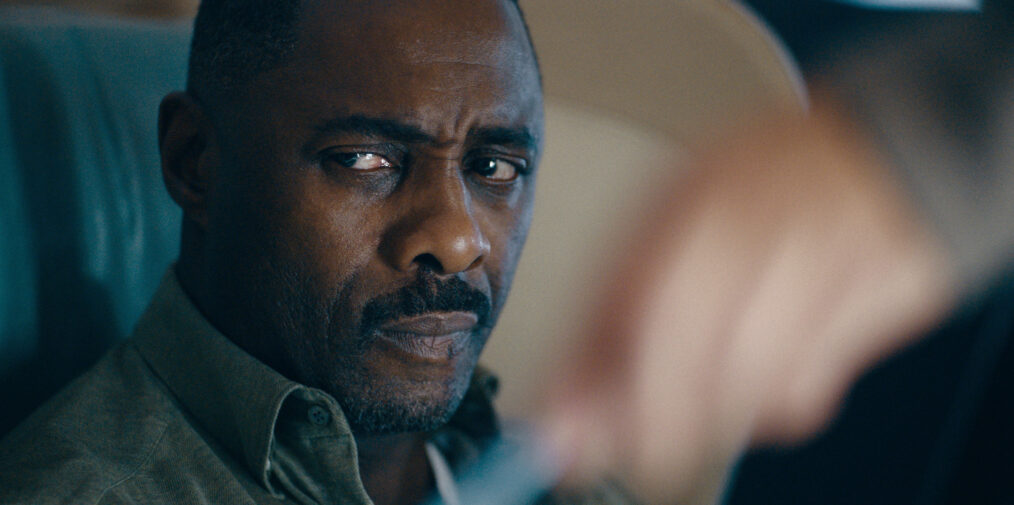
Apple TV+
Yeah, I like that he doesn’t step on the ground at the end of the season.
Smith: The fun thing we had was the moment where he is about to step off the plane, and then he steps back in, which is the horror movie “Don’t go in there” moment. But yeah, I think we wanted him to smell and taste freedom, as it were, and then have this final chapter that he has to go through.
How has this experience changed Sam regarding who he is, his job, and his family? How is he looking at things as he steps off the plane?
Kay: He opens up in terms of his emotional awareness and his entitlement. He’s a first-class passenger, and there’s a sort of entitlement to that. And then his ex-partner [Christine Adams‘ Marsha] doesn’t want him to get on that plane, but he’s decided that he’s going to alpha that situation. But over the course of the flight, he realizes he can’t solve this hijacking situation single-handedly, and he has to rely on the help and the ideas of other people, and that’s mirrored on the ground with his family life. It becomes clear via different avenues that maybe Marsha’s with someone who has more time for her and is more dedicated and is less focused on himself and his career in the way Sam is. So that’s the shift he goes on.
He remains Sam in all his capable facets, but he’s not quite so self-centered, perhaps as when he takes off. You look at the apartment that he’s got in London; it’s a real bachelor pad. You like to think that the Sam that would make it back there, in the end, would start to be more accommodating to Kai [Jude Cudjoe] and other people in his family who might want to visit that place rather than make it a kind of boy pad for his own life.
What was the last piece that you came up with for the hijacking plot?
Kay: I think it’s a fairly linear process in terms of coming up with stuff for the hijacking plot. I didn’t want to write hijackers who are irredeemable because they’re not interesting. They’re not 360-degree characters. You don’t want just bad guys on a plane. You want to see that they have their own vulnerabilities. It was very early on that we wanted the hijackers to be hijacked themselves in the final act so they were helpless in terms of, behind the whole monster on the plane is a bigger bad of who’s controlling the monster on the plane, which is kind of a ‘90s movie trope and in a sort of Jurassic Park way, the dinosaurs are not the problem, it’s the people behind the dinosaurs who are the problem. So you always want to have an extra layer underneath and that was Edgar [Simon McBurney] and John Bailey-Brown [Ian Burfield], and that, I think, as Tindall [Alex Macqueen] says, if you want to get people out of prison, you don’t hijack a whole airliner. There are easier ways to do it, so there’s something else going on.
How early on did you know it would be about money? Were there any other motives that you considered?
Kay: It wasn’t always about money, but we hadn’t quite settled on what that was for a while. It was more that we didn’t want it to be about religious fundamentalism or terrorism or any issues that perhaps you might more recently associate with hijackings and not particularly a political issue. So crime became a very important idea for that. I’d read, and I’ve been interested in, how, without taking this conversation too dark, young women are often groomed into prostitution, whereas young men are groomed into organized crime, and them as victims was an important part of making them more interesting characters. So if you look at Lewis [Jack McMullen], the hijacker who dies at the back of the plane, he didn’t really want to be there. He was forced into being there by his older brother and by his older brother’s controllers. So it was always in an attempt to make the hijackers redeemable in some way, whereas if they’ve got a zeal and an extreme religious fundamentalism, that’s harder to unpick and felt like not the sort of bad guys we wanted really.
Smith: And the good thing about the financial crime aspect of the story [was it] meant that we could go for the organized crime group behind the hijacking end up falling foul of greed — because it’s financial crime, about how much money can we get, and the longer they let that incident unfold, the richer they get. Literally, Edgar, who’s the lead criminal of the show, I suppose, says, “With every second that goes by, we’re earning millions more pounds.” And his compass is, how much richer do you need to be? We were able to bring it back to these very simple human flaws like greed is such a great simple concept. You can see how people would fall afoul of that. Whereas, as George says, once you start to get into zeal or religious extremism, it’s a harder area to dig into and unpack, particularly in a show where that’s not the main sort of thrust of the story. As George says, it’s really about the characters and the decisions they’re having to make. So we try to make it about something that was a very understandable sort of human flaw.
How did you decide who would live and die? What did you want to do with the deaths that you did have?
Kay: You want to surprise people, so you want to kill people you like — that’s important — and kill some people you don’t like — that’s even more important. So it’s making a nice balance of those two things to shock, twist, and look for the least suspecting person to die. It should always be the person you are second least expecting because the person you’re least expecting would probably be the person you’re secretly suspecting. So you want to just play the game of what the audience thinks is going to happen, encourage the audience to like characters who you’re then going to butcher. That’s the game you’re playing with the audience the whole time, inviting them to invest in people and shocking and twisting. And it’s the great thing about a fictional show as opposed to true stories or causes. Going back to the types of hijackers they are, this is not a cause, this is criminal, and anyone can be a criminal.
Smith: What’s revealed is the hijackers don’t really want to kill anyone. The plan was not to kill anyone. As far as the hijackers on the plane are concerned, that was never the plan. It’s revealed that their guns are loaded with blanks; they’ve brought live rounds in case it doesn’t work out. Because of Sam’s actions and the actions of some of the other passengers, their plan starts to fall apart, and so they have to start doing things that they hadn’t really signed up for. As George says, Lewis says, “This wasn’t the plan. We agreed we weren’t going to do this.” So you realize that really the hijackers don’t want to kill anyone. That actually makes it more fun from a sort of writing point of view, I suppose, because people are not just killing people arbitrarily; they’re having to make really horrible choices about who gets hurt and who doesn’t.
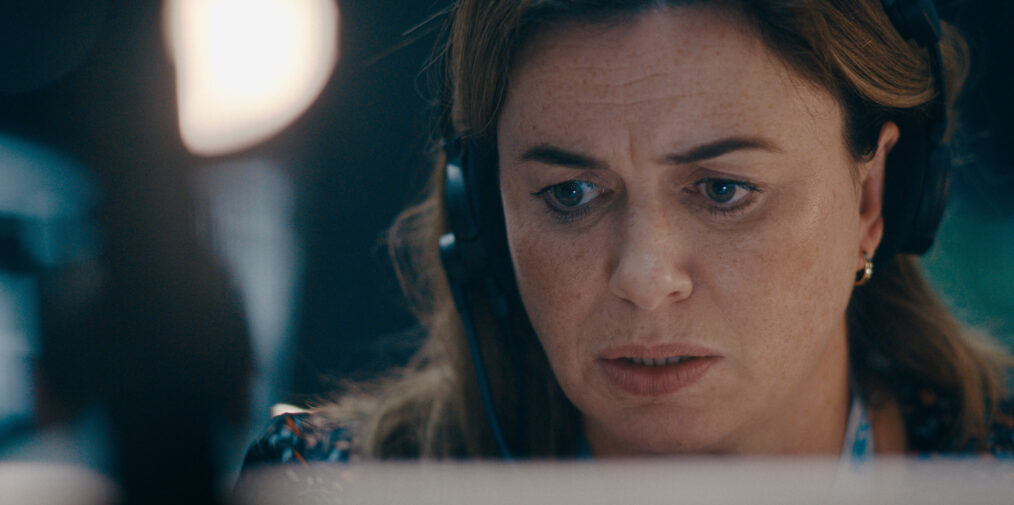
Apple TV+
Something I enjoyed was the dynamic between Sam and Alice, her having to leave work right after, and her boss’s reaction after how the day started with her. What did you want to do with Alice and Sam in the finale — since it did feel like those two had to talk at some point, and it was building up to that — and Alice, in general, this season?
Kay: I was really into the idea that Sam is not a Marine, a SAS soldier, or specifically equipped to deal with this situation, and that theme carries on on the ground where Alice is the most everyday hero. That was the whole plan. There are things in her day that are as important as hijackings, [like] being on time to pick up your kids from school. The whole thing means that the show, at least on the ground, is very grounded in these concerns that all the audience would relate to. And even though she’s done something incredible, she still has to pick up her kid on time and do the normal parenting stuff. We really like the sort of juxtaposition of having her caught up in life and this incredible thing going on.
And she’s actually so straight talking and normal that she can handle Sam. She can handle Idris, such a global star, and it takes an Eve Myles to say, “Now, listen to me, Sam.” It was great for the variation of tone and to make sure it didn’t become too [much] of a super control room where there’s a superhero on the ground and there’s a superhero in the sky. And that would extend to the fact that when it comes to the landing, you’d think Sam Nelson should land the plane. But actually, it’s Amanda, it’s a team effort, and that marks the change in him from the guy that will not stay in his seat and thinks he can do this whole single-handedly to having to help Holly Aird land this plane in the end.
Hijack, Season 1, Streaming Now, Apple TV+


